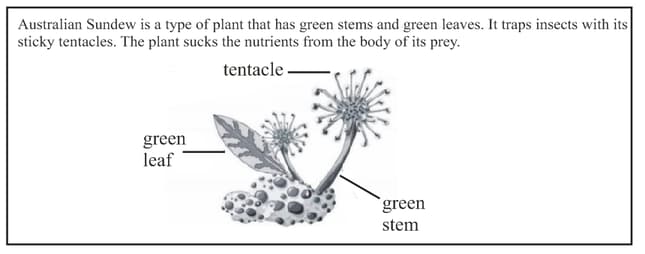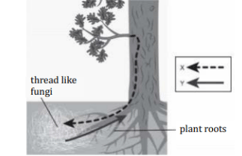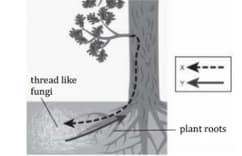NCERT Solutions for Chapter: Nutrition in Plants, Exercise 1: Exercise
NCERT Science Solutions for Exercise - NCERT Solutions for Chapter: Nutrition in Plants, Exercise 1: Exercise
Attempt the practice questions on Chapter 1: Nutrition in Plants, Exercise 1: Exercise with hints and solutions to strengthen your understanding. Science Textbook of Competency Based Questions for Class VII solutions are prepared by Experienced Embibe Experts.
Questions from NCERT Solutions for Chapter: Nutrition in Plants, Exercise 1: Exercise with Hints & Solutions
Jessy wanted to find out the conditions that best support the rotting of bread. The growth of coloured fluffy patches on the surface of bread confirms rotting. She kept four bread slices in different conditions for five days. The table below shows Jessy’s findings after five days.
| Bread slice | Where the slice is placed | Number of coloured fluffy patches after five days |
| Slice 1 | On wet cotton at 5 ℃ | Two patches |
| Slice 2 | On a dry plate at 30 ℃ | Six patches |
| Slice 3 | On wet cotton at 30 ℃ | Ten patches |
| Slice 4 | On a dry plate at 5 ℃ | No patch |
Which condition can best prevent rotting for a long time?

Australian Sundew is a part autotroph and part heterotroph.
Write two features of the plant that support this.
Which of the following organisms obtain nutrients from dead and decaying organisms?

X and Y show the direction of flow of substances from one source to another.
Which substances move in X direction and which substances move in Y direction.

Parasite is an organism that lives in or on the body of another organism. It receives energy and nutrients from the host organism. Parasite does not give anything in return to its host. Is the group of fungi shown in the picture a type of parasite? Explain your answer.
The sun provides energy for all living things. Gurmeet wrote two statements to explain the above fact.
Statement 1: All autotrophs prepare their own food in the presence of sunlight.
Which of the following should be Statement 2?
With the help of an activity, show that carbon dioxide is necessary for photosynthesis.
Animals eat either plants or other animals, then how are they dependent on the sun for energy? Justify.
